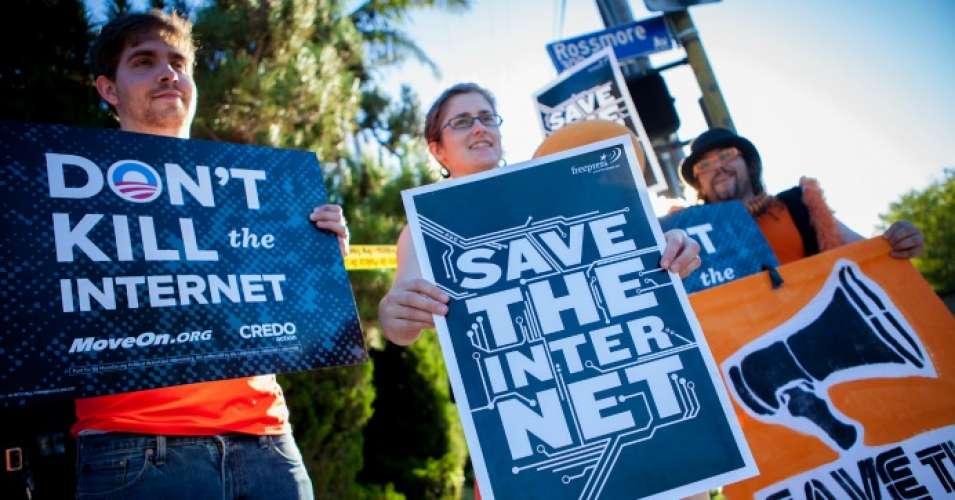Net Neutrality 2018
As the last six weeks of 2017 unfolded, many Americans were preoccupied with the raging fires in California, the approaching holidays, and federal tax reform. Meanwhile, FCC Chairman Ajit Pai had his own agenda. He wanted to simply, as he put it “ Take the internet back to 2014”. Why 2014? That was before the February 2015 meeting of the FCC, led by then chairman Tom Wheeler, to enact provisions that were intended to preserve net neutrality in the United States.
At that time, Wheeler saw the changes occurring within the ISP, internet, and entertainment industries that would give these organizations far too much power to control the internet and how content could and would be accessed. He, in fact, was quoted as saying “(These) providers have both the economic incentive and the technological capability to abuse their gatekeeper position.” He saw the need for net neutrality rules that would prevent ISPs from either throttling back or even blocking content and from using their power to decide what services are prioritized to whom. Since 2015, net neutrality rules have prevented ISPs from exercising this potential power to control speed, access, and content. It could be argued net neutrality rules have forced them to be more creative and consumer friendly in competitively positioning their products and services.
Now as 2018 makes its debut, net neutrality regulations have been rolled back to 2014. The “new” rules require that ISPs disclose any blocking, throttling or prioritization that takes place from either them or their partners. Many are concerned, however, the control of the internet is in the hands of mega-content providers, entertainment giants, and ISPs with little to no restrictions. So what’s next? What is the effect on the American digital consumer likely to be and is any hope for net neutrality gone forever?
So What Will 2018 Bring for Consumers?
It is possible that immediate changes will be imperceptible. It is likely we will still see faster speeds, more inclusive packaging, and even attractive pricing as companies position themselves for the future by building access to content and their customer bases. There are still economic and public relation incentives in place to keep ISPs from immediately taking advantage of the rollback. What many fear, however, is not the short-term but long-term impact on the internet.
Some fear the internet will become more cable-like as time passes, with ever-increasing rates, limited consumer choices, and speeds controlled by providers. With large providers yielding so much power, consumer options to alternative entertainment choices may be limited by ISPs who are controlled by content providers. Smaller startups will find it more challenging to compete and creativity and choice may be stifled by “muscle”.
Again, most of these concerns perhaps won’t manifest themselves immediately but there are those who feel if net neutrality isn’t restored soon, it may irretrievably disappear.
It’s Not Over Until It’s Over
Proponents of net neutrality have far from given up. New York Attorney General Eric Schneiderman apparently is seeking the help of other states. He hopes to challenge the overturning of the 2015 rules restoring net neutrality. At the same time, there is a movement within Congress to put the 2015 rules back in place.
One thing that has apparently changed forever is the Federal Communications Commissions’ role in controlling the internet and the actions of ISPs. The FCC is apparently taking a more hands-off approach and letting “the market” control the future of the internet in the United States. While some embrace the philosophy, many others are wary of it.
One should keep in mind, however, the net neutrality rules were set in 2015 in anticipation of preventing potential problems of throttling and controlling access. Even in 2014, these weren’t an issue. The landscape in the industry today is far different, however. Mergers and acquisitions have created ever larger and more powerful alliances. The potential of abuse in the quests for profits is a real concern.
Anonymity and Net Neutrality
As we addressed in a blog from August of 2017, when the discussions on net neutrality began to ramp up, one of greatest concerns of hosting in a country without net neutrality is being assured of anonymity. We’ve already seen steps taken in the U.S. where ISPs not only have access to consumer information and searches but have the ability to use that data to increase profits.
One of the reasons OrangeWebsite.com made Iceland our home, is the country’s aggressive posture on net neutrality, anonymity, and freedom of speech on the internet. Iceland maintains a politically moderate environment that is less prone to the political extremes of other countries. While there are many internet restrictive countries in the world, Iceland is constantly at or near the top of internet-friendly countries around the globe. For these reasons and our unwavering commitment to providing facilities that are planet and energy friendly, you can count on OranageWebsite.com as your hosting solutions provider now and into the future.
As this seemingly new era without net neutrality in the United States moves forward, we will keep an eye on its impact on consumers and how it is viewed worldwide. We will watch as these powerful ISPs move forward and how they handle this new responsibility. We will also keep you informed of where the issue stands politically and the success, or lack thereof, of returning the net neutrality through legislative actions. Is there reason to panic? Perhaps not. There does seem to be more reason to be diligent in making sure the internet remains a free and open environment for ideas, information, creativity, and commerce.


Recent Comments